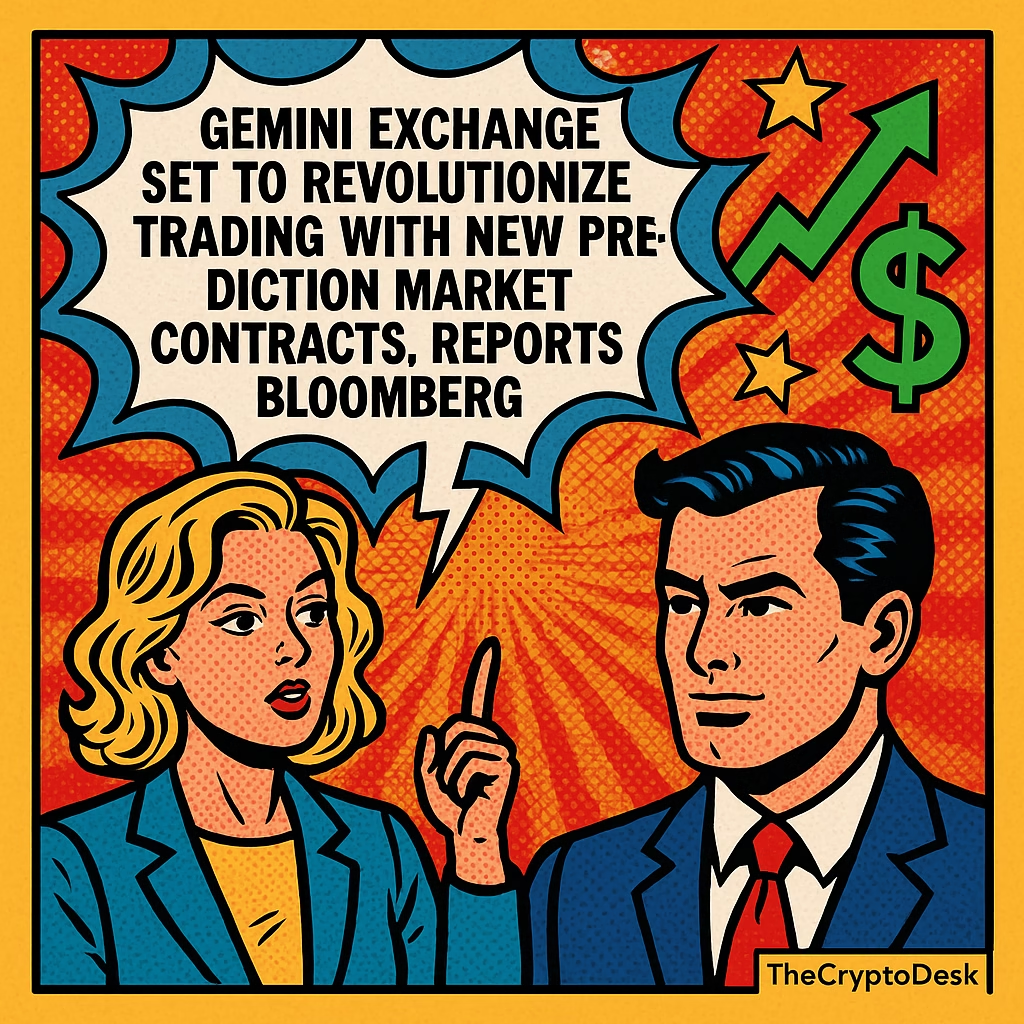In an exciting move that could shake up the cryptocurrency landscape, Tyler and Cameron Winklevoss’ Gemini exchange is gearing up to launch prediction market contracts, as reported by Bloomberg on Tuesday. This ambitious plan positions Gemini to enter a competitive arena dominated by established players such as Kalshi and Polymarket, promising to expand the horizons of digital asset trading.
But what exactly are prediction markets, and why are they capturing the attention of major exchanges like Gemini? Simply put, prediction markets allow participants to buy and sell contracts based on the outcomes of future events—ranging from economic indicators to political elections and even major sports events. The recent surge in interest for these markets indicates a significant shift in trading dynamics, and Gemini aims to capitalize on this momentum.
As part of their vision, the Winklevoss twins are keen on launching these innovative products as soon as the necessary approvals are secured from the US Commodity Futures Trading Commission (CFTC). Their proposal, which includes plans for designated contract markets, has the potential to reshape how traders interact with event-driven forecasts. However, securing this regulatory approval could be a lengthy process, possibly stretching into months, or even years, particularly given the current unpredictability surrounding government operations, including a potential government shutdown.
Earlier this year, Gemini made waves with its initial public offering (IPO), which reportedly raised a staggering $425 million. This impressive debut underscored the platform’s robust potential, with the Winklevoss twins hinting at their interest in exploring event contracts for various sectors, including economics, finance, politics, and sports. Such diverse offerings would position Gemini uniquely among its competitors.
As we explore the landscape of prediction markets, it’s fascinating to note the unprecedented demand they are generating. Platforms such as Kalshi and Polymarket have experienced record volume growth, demonstrating that there is a vast appetite for trading in this new domain. Kalshi is already registered with the CFTC, while Polymarket is eyeing a comeback in the U.S. market, further fueling competition.
Experts are optimistic about Gemini’s intentions. An analyst from investment bank Needham remarked to Bloomberg that the expansion into prediction markets represents a lucrative opportunity for Gemini to diversify its offerings significantly. This sentiment reflects a broader industry trend, where traditional trading firms like CME Group are also venturing into these engaging new markets. Even popular crypto exchange Coinbase has announced its plans to introduce event contracts as part of their “Everything Exchange” initiative—a clear sign that prediction markets are the future of trading.
Moreover, Robinhood’s recent announcement about launching a prediction market where users can trade on game outcomes showcases just how far-reaching this trend is becoming. James Newman, Chief Corporate Affairs Officer at Chiliz—an organization dedicated to enhancing fan engagement through blockchain—echoed this sentiment by noting an increasing recognition of the potential in the prediction market space. He emphasized the importance of integrating sustainable practices in this domain, balancing innovation with a sense of responsibility.
As Gemini stands on the brink of a significant transformation, the potential impacts of their prediction market offerings could set a new benchmark for both users and the broader cryptocurrency ecosystem. The simple question remains: will they be able to navigate the regulatory maze and emerge as a key player in this burgeoning market? Only time will tell, but one thing is certain—strong winds of change are blowing through the cryptocurrency world, and prediction markets are at the forefront.
For further insight into the rising trend of prediction markets and to stay updated on Gemini’s progress, check out CoinDesk and MarketWatch.
